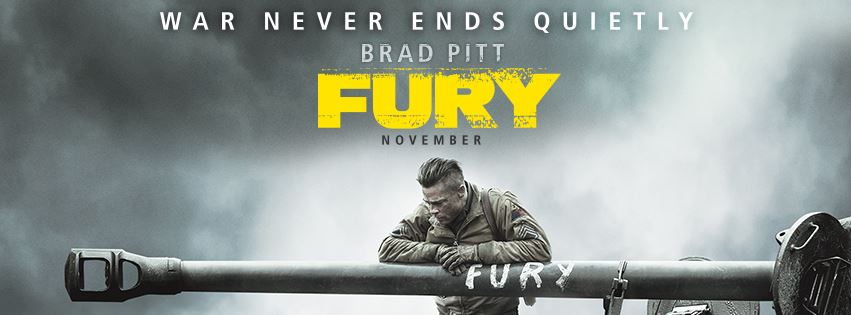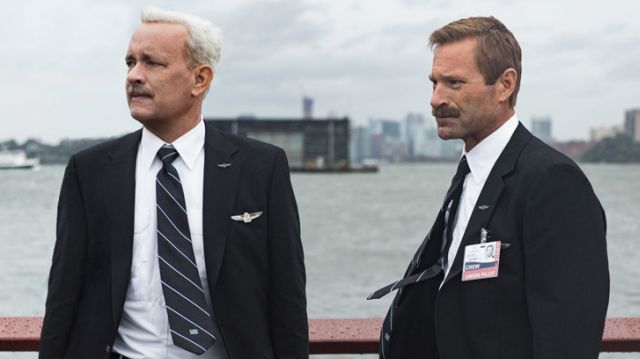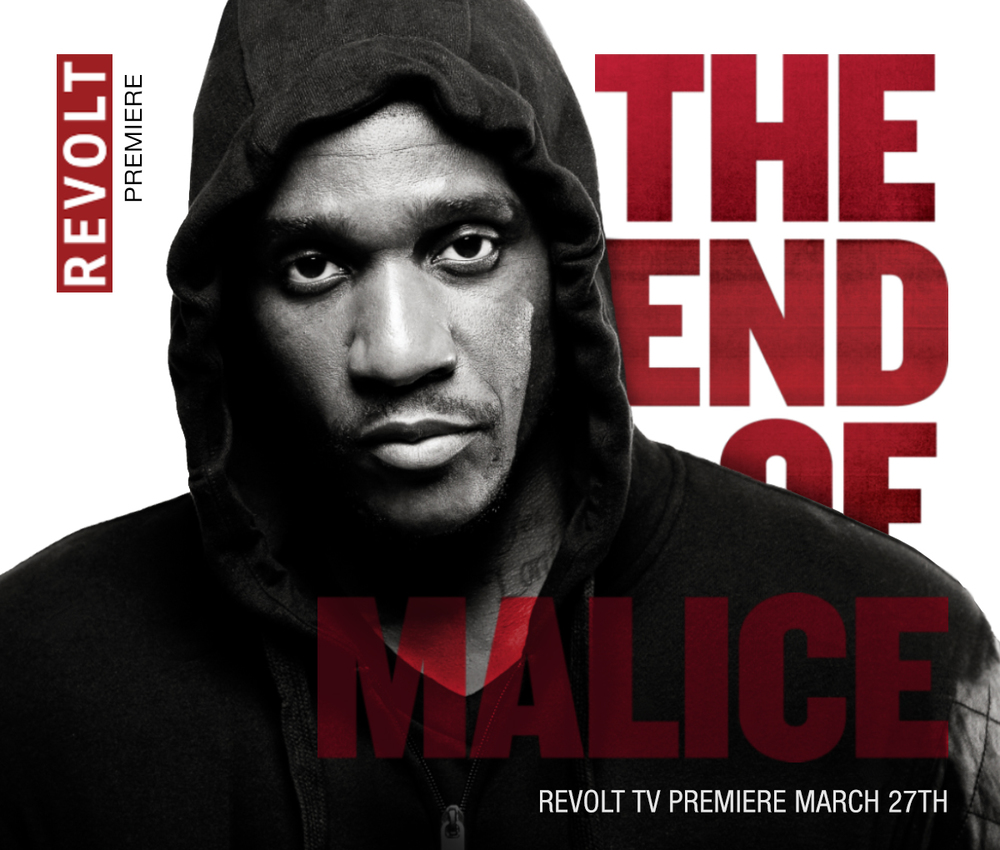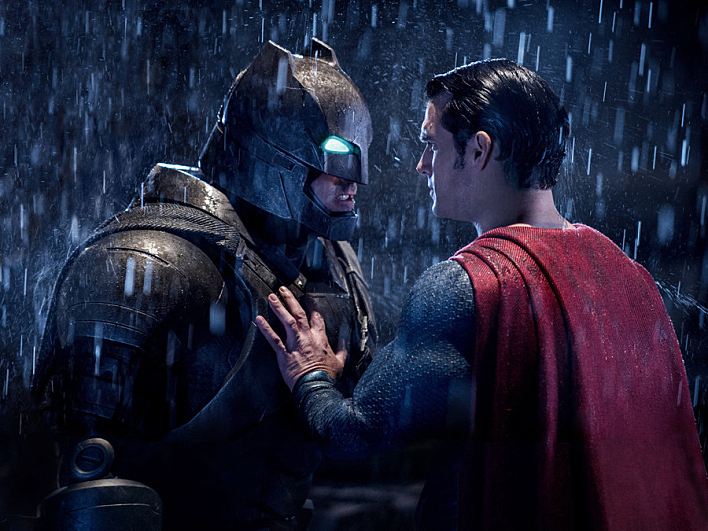War has become nothing but a game to us. Due to the Call of Duty’s, the Battlefields, and the Medal Of Honors, mowing down hordes of enemies has become as mundane as taking out the trash; it’s a necessary chore to get the job done. Fury seems to want to remind us that war is more morally complex than that, and when killing becomes “just another part of the job,” what does that say about our humanity? I say it seems to want to explore these issues because while the initial set up of the film is ready to delve into the murky quagmire of the morality of war, the story ends with a scene that could have easily been one of the key set pieces from any of the previously mentioned games, with about as much reflection as a gamer might have mowing down countless enemies to complete the level. It’s a shame because it’s clear that Fury really, almost desperately, wants to join the pantheon of great war films like Saving Private Ryan and Black Hawk Down, but despite all of its hard work, it falls short of that lofty goal. Instead, it ends up being just a pretty good war movie that strives to depict the horrors of war that in the end, plays out like an epic Medal Of Honor video game level.
The best part of Fury? The sound design. I know that’s kind of a strange thing to pick out as the best element, but I’m telling you, the sound was one of the most impressive things about this movie. You felt every cannon shot, every explosion, every bullet, and every impact. I jumped in my seat once or twice due to the sharp, explosive retort of mortar fire. My seat rattled at times during scenes inside the tank. This is the type of sound design that should win an Oscar (the rest of the movie…not so much). Couple that with a mostly great soundtrack, and Fury does a fantastic job of establishing an extremely tense atmosphere. There are times where it almost feels like you’re watching some sort of intense horror movie rather than a war movie – which goes back this film’s desire to highlight that war is a horror. The soundtrack can get a bit overwrought and overdramatic in parts (much like the movie itself), but like the sound design, it goes a long way to helping this movie establish tone and atmosphere and is generally an excellent example of how to use music in a movie.
The fact is, these elements go a long way in propping up the more dramatic moments in the movie, which if left to their own devices, would not have as much impact. The key dramatic moments in this movie really aren’t earned. 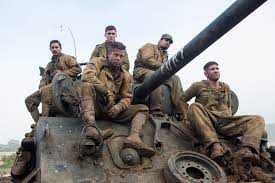 The film wants to explore the corrupting influence of the horrors of war, but the changes wrought by those things happen a bit too quickly and too conveniently and not in a fully convincing manner, which in the end leaves them feeling a bit like a forced cliché. The innocent, wide-eyed, never-been-in-combat New Recruit is exposed to a tank crew that’s been fully exposed to the horrors of war and as a result is barely keeping it together. New Recruit believes in what’s right, Seasoned Veteran tells him war isn’t about right and wrong, it’s about doing the job, and the job is killing. New Recruit believes ideals are important, Seasoned Veteran tells him while ideals are nice, but history is violent. One convenient (if it can be called that) tragedy later, and New Recruit is mowing down Nazis with as much hate and calloused indifference as Seasoned Veteran. It’s a bit disconcerting that the film implies right and wrong, and the importance of ideals can be so quickly corrupted by the horrors of war. The implication almost seems to be that war exposes those things as facades that humanity erects in order to have a better opinion of itself, but war tears all of that away and shows humanity for what it really is. It’s a bleak outlook, a grim one, and a hopeless one. I also think it’s an inaccurate one.
The film wants to explore the corrupting influence of the horrors of war, but the changes wrought by those things happen a bit too quickly and too conveniently and not in a fully convincing manner, which in the end leaves them feeling a bit like a forced cliché. The innocent, wide-eyed, never-been-in-combat New Recruit is exposed to a tank crew that’s been fully exposed to the horrors of war and as a result is barely keeping it together. New Recruit believes in what’s right, Seasoned Veteran tells him war isn’t about right and wrong, it’s about doing the job, and the job is killing. New Recruit believes ideals are important, Seasoned Veteran tells him while ideals are nice, but history is violent. One convenient (if it can be called that) tragedy later, and New Recruit is mowing down Nazis with as much hate and calloused indifference as Seasoned Veteran. It’s a bit disconcerting that the film implies right and wrong, and the importance of ideals can be so quickly corrupted by the horrors of war. The implication almost seems to be that war exposes those things as facades that humanity erects in order to have a better opinion of itself, but war tears all of that away and shows humanity for what it really is. It’s a bleak outlook, a grim one, and a hopeless one. I also think it’s an inaccurate one.
My dad was in a war, and he shared stories of hope, stories of how the Right Thing still mattered, and that even in the face of the Violence of History, ideals still mattered. The issue really comes down to where we think right and wrong and higher ideals come from. If they are merely the facades created by humanity as this films implies, then it would be easy for them to be torn down or disregarded when needed (such as “getting the job done” in a time of war.” However, if they are things external to us, not created or established by us, but created and established outside of us, if they are eternal elements established by an eternal God who exists beyond the limited scope of history, then it is possible for them to endure even in the face of the horrors of war. They can remain incorruptible regardless of “what a man can do to a man.” War is a horror, but I don’t believe it can corrupt eternal Truths that were established long before the “art of war” was ever developed. It is the root of the righteous that endures (Proverbs 12:12), and it does so because that root does not depend on the existence of mortal man, but immortal God.
If I were to give a subtitle to Fury, it would be “War is Hell Overkill.” This a grisly movie with many grisly scenes determined to illustrate just how grisly, ghastly, and horrific war can be. Almost too much so. It works too hard to make that point. Another possible subtitle would be Fury: “War and the Corruption of Man” as it focuses quite a bit on how war can quickly wipe away “naïve” ideals such as right and wrong. The biggest issue with Fury is that it just tries too hard. It tries too hard to deliver these messages. It tries too hard to be gritty, grisly, and grim. It tries too hard to be dramatic. It tries too hard to be powerful. It’s a shame, because if it would just let its many elements work together without trying so hard to force anything, it could have been a sublimely powerful and poignant film. Brad Pitt and Logan Lerman deliver fine performances that often edge on greatness. The cinematography is harrowing and beautiful, and I already touched on the amazing sound design and music. The central ideas explored are thought provoking and challenging. The battle scenes are often extremely intense and many scenes leave you with a twisted, gut punched feeling of dread. Yet issues with pacing (a middle scene drags on too long and derails the films momentum), some overwrought dialogue and carnage, and the fact that key dramatic moments aren’t really earned and are instead rushed, forced, and clichéd keep Fury from reaching the heights it so desperately wants to ascend to. It wants to display the real horrors of war but ends with the absurd carnage of a video game.

